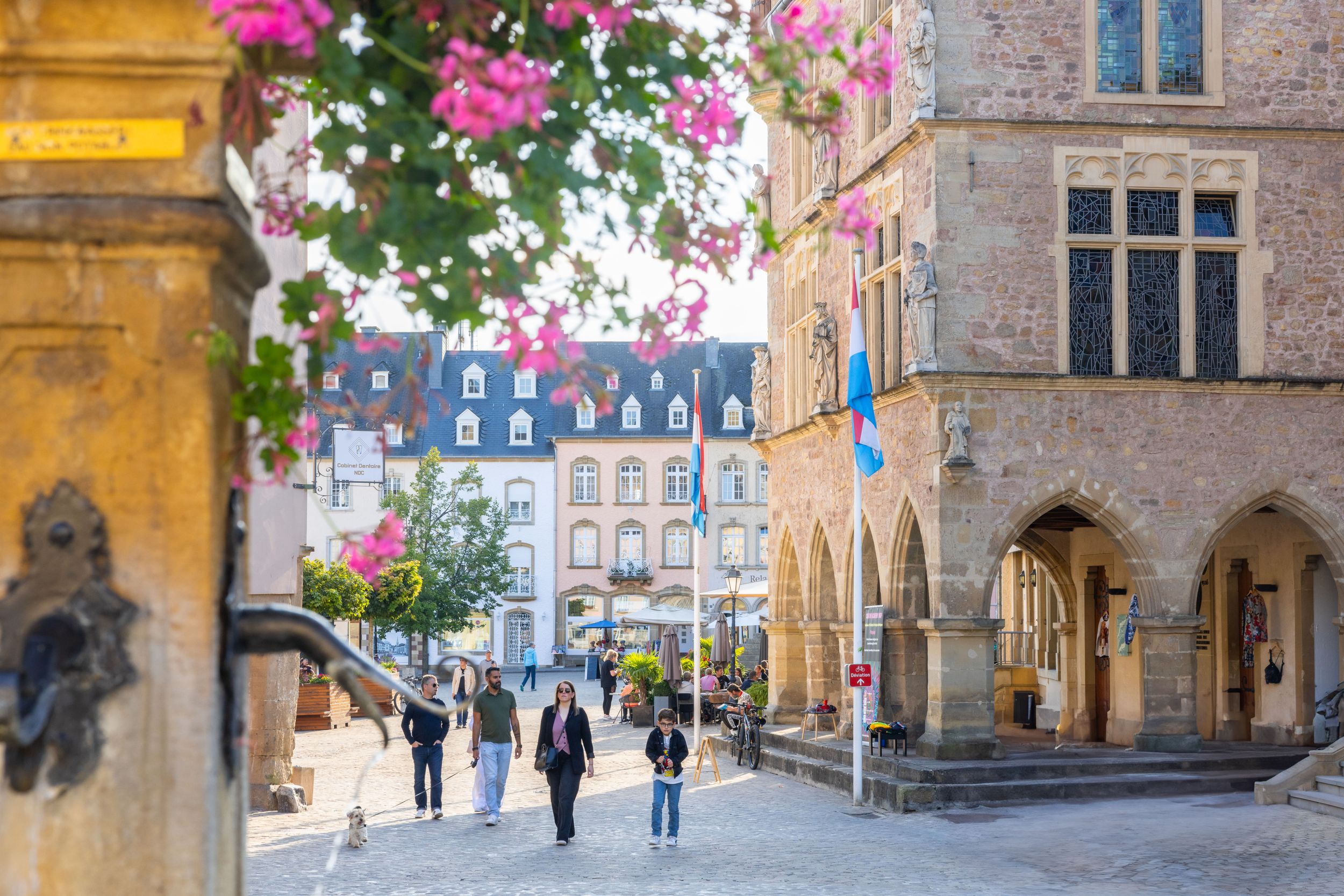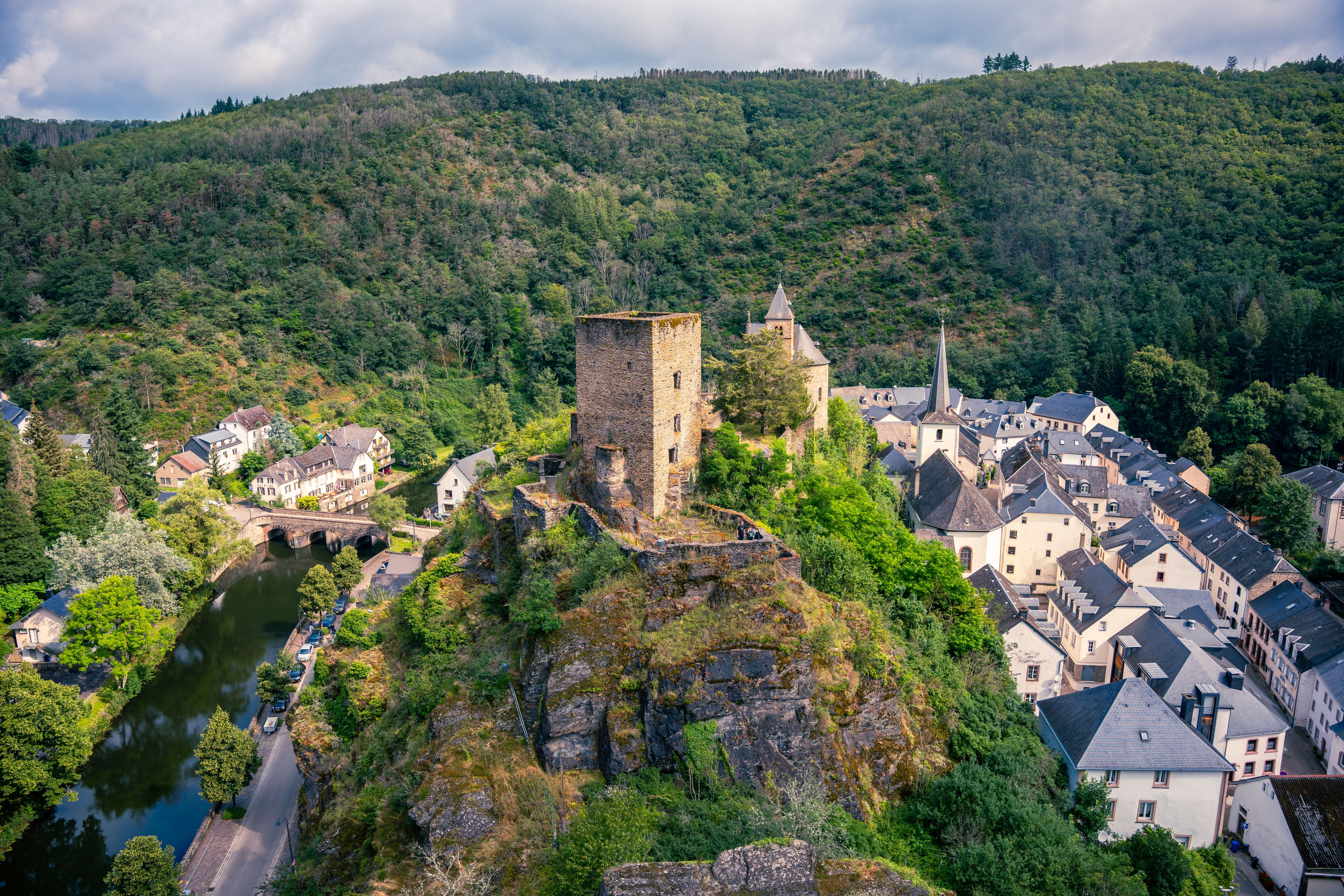Jan-June review and autumn forecasts
European tourism showed moderate yet resilient growth in the first quarter of the year, with a 2% rise in arrivals and a strong Easter season, despite travellers shortening their stays amid budget constraints. The sector’s steady recovery comes against a backdrop of trade tensions, strikes, and local protests, while improved air connectivity has fuelled renewed demand from Asia-Pacific markets, particularly Japan and China. Luxembourg stood out in June with an online reputation score of +89 on the Net Sentiment Index—well above the European average—boosted by positive mentions of cultural events, heritage, outdoor activities, and niche attractions. Read on for further performance and survey results and forecasts.
LFT Hotel & Camping Survey
- Hotel occupancy rate forecast: 76% (Jul, +3 pts), 68% (Aug, +1 pt), 75% (Sep, -1 pt). Stronger occupancy rate growth for all months in Luxembourg City, driven by leisure travel demand growth, as in other regions.
- Camping occupancy rate forecast: 77% (Jul, +1 pt), 75% (Aug, -4 pts), 51% (Sep, +4 pts). Over 40% of campsites expect bookings for both rental and motorhome segments in summer and autumn to increase vs. last year.
- Turnover, Jan-Jun: hotels +4% (a slowdown compared to previous years), campsites +29% (reflecting its positive performance in Q2).
This season, hotels are seeing especially lower on-site spending from guests, with 77% confirming the trend, and the willingness to further raise rates has slowed in the hotel sector. Compared to last year, considerably fewer hotels and campsites are being forced to postpone investments due to cost pressures. Overall, satisfaction levels are strong, with 54% of hotels and 86% of campsites happy with the season so far, while optimism for the remainder of the season is even higher—62% among hotels and an impressive 93% among campsites.
Current search & booking data
- Hotel searches +16%, bookings +10% vs. last year as search growth for leisure travel exceeds that for business travel.
- Flight searches -4%, bookings +10% vs. last year, more driven by business travel, esp. yielding strong demand for October-April
- Camping bookings stable for Jul-Aug, +23% for Sept-Oct, +9% forecast for entire year, following up previous seasons with exceptional growth.
Short-term travel intent surveys
- 77% of Europeans consider taking at least one trip in summer or autumn this year, up 1 point vs. 2024.
- Travel intent is rising for intra-European international travel and trips in Aug-Sep
- Planned trip frequency drops from 2.3 (2024) to 1.9 trips (2025) as more Europeans intend to take only 1 trip (+6 pts).
Interest in nature and outdoor trips is growing among Europeans, while culture and heritage are becoming less of a priority. Travellers considering Luxembourg are more frequently planning city breaks and trips surrounding food and wine. This season, they are also opting for more holiday trips, while showing less interest in leisure events. Geopolitical conflicts influence travel choices mainly when they present a direct safety risk or the potential for disruption. At the same time, factors like crowding and the friendliness of locals are becoming increasingly important decision-making criteria.
Economic and travel forecasts
- Tourism-related service prices in the euro area are rising (+2% flights, +4% lodgings, +5% packages) amidst high costs, driving travelers’ price sensitivity.
- International arrivals in Europe are forecast to grow 9% in 2025 and 5% in 2026 (Western Europe: +3% in 2025, +4% in 2026), with growth potential from both short- and long-haul travel.
Negative travel sentiment towards the US from Europe and other key markets may cause arrivals to the US to drop by 8% in 2025, as demand from Canada and Brazil is increasingly shifting towards Europe, aided by improved flight capacity. Travel from the US to Europe appears to be resilient.
Growth opportunities for tourism include leisure events and good value for money, potentially benefitting affordable, lesser-known destinations, which could also ease overtourism pressures.
However, while overtourism appears to be very much limited to specific times and places, the concentration of good deals to a limited number of destinations may accelerate overcrowding in these hotspots.


